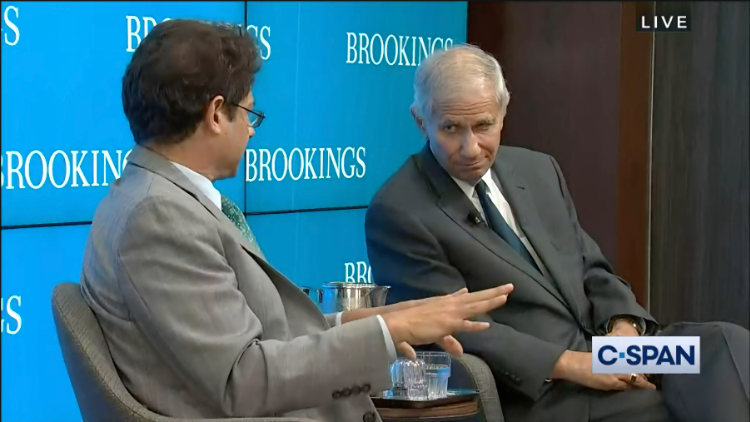This Friday is all about Uncle Sam. First, we have remarks from the FDIC on jacking up deposit insurance rates and capital requirements. Next is the SBA opening up funding to venture capital firms, with a potential twist towards AI and national security markets.
1. FDIC tighten capital requirements on regional and large banks
Rajashree Chakravarty of Banking Dive covered FDIC Chairman Martin J. Gruenberg’s speech at the Brookings Institute on Monday. His speech covered the agency’s planned regulatory proposal on stepped up supervision and deposit insurance pricing.
“The agencies’ actions include requiring long-term debt, capital recognition for unrealized losses for available for sale securities, and strengthened bank resolution plans, as well as enhancing supervisory attention to uninsured deposit concentrations and considering adjustments to risk-based pricing for deposit insurance. Once implemented, these measures will mitigate these risks and enhance the stability and resilience of the U.S. banking system.”
In addition to insurance pricing increases, the proposal calls for more robust resolution planning - “not dependent on an over-the-weekend sale.” The plan includes increased capital requirements for banks with assets>$100B.
The federal banking agencies also issued a notice of proposed rulemaking to implement the Basel III capital rule in which unrealized losses on available for sale securities would flow through regulatory capital for all banks above $100 billion in assets. This also means that banks might need to retain or raise more capital to maintain their capital levels if these unrealized losses occur.
The transcript of his remarks can be found here, and C-SPAN recording here, starting at 08:24.
2. SBA opens SBIC funding to venture capital funds
This week the SBA changed the terms of its SBIC program to allow funds to go to venture capital funds.
Small Business Investment Company (SBIC) program is aimed at increasing investment in U.S. small businesses. The program focuses on companies in underserved communities and geographies, plus capital-intensive industries and those critical for national security.
Previously funding required SBICs to pay semi-annual interest, which doesn’t match venture-based business models. The changes taking effect this week now allow for interest to accrue over a venture fund’s life.
Interest can be prepaid, if desired, and must be paid on a pro rata basis when there are LP distributions. Return recycling is permitted.
Participating funds must invest exclusively in U.S. small businesses, or funds that make such investments, as defined by the SBA’s fairly generous metrics.
At first glance, this looks like the opening of the flagship 7a loan program to Fintech lenders earlier this year. However, the national security angle may give clues to the intent.
The Department of Defense announced earlier this year its participation through the Small Business Investment Company Critical Technologies Initiative (SBICCT) program through the newly created Office of Strategic Capital. This program is administered as a joint venture with the SBA through the SBIC.
All of this comes in the context of:
- Reverse “CFIUS” executive order on restricting investment in certain technology (including AI) investments in China
- Security concerns on the semiconductor supply chain, specifically tensions with China over Taiwan
- The tightening supply of graphical processing units (GPUs), related AI startup’s cost crunch on GPU availability
- The now year-old CHIPS act
All of this points to an increasing effort by the federal government to protect future technological advantages for the nation, whether through today’s actions and investment in tomorrow’s breakthroughs.
So brings a close to the week. Everyone has bad days, even bad first days, but rarely are they captured in time with so much irony as this.. How’d we do this week? Click below to let us know:

